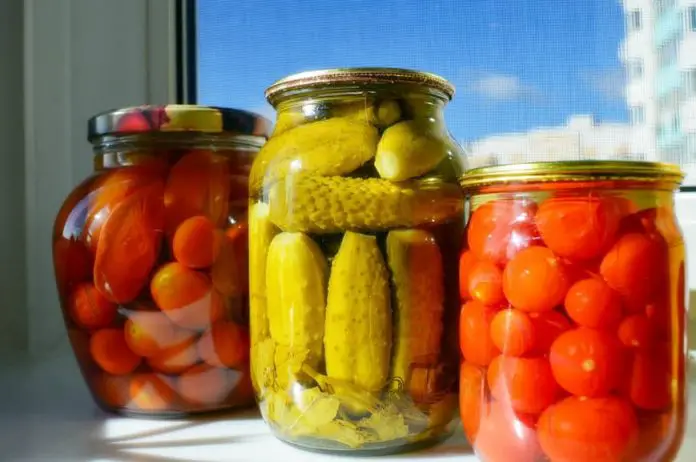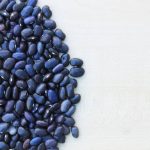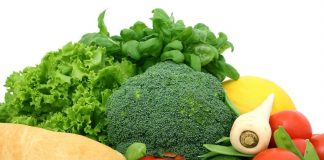Pickles are foods preserved in brine, vinegar, and other acidic solutions like lime. They are used to spice up meals such as sandwiches, burgers, and turkey wraps. Pickles help boost the probiotic content of any meal because of the healthy bacteria they contain.
Pickling can be done to a variety of foods: veggies, fruits, meats, and seafood. But when we say pickles, the first thing people think about are the cucumber pickles mainly because they are the most popular among all pickled foods. In the United States, cucumber pickles are simply referred to as pickles.
What if your pet happens to like pickles? It’s not impossible for your dog to like pickles, since they do not have an offensive flavor. The vinegar is already neutralized when used in pickles. Or what if he just ate some of it suddenly? Read on for more information about pickles and their effect on canines.
Can Dogs Have Pickles?
Dogs can eat cucumber slices. The subtle flavor of cucumber is a refreshing treat for doggies, especially during hot summer months. Aside from keeping your dog hydrated, cucumber is also a great source of vitamins and minerals.
Nevertheless, the excess sodium as well as the other ingredients from the solution, can be detrimental to your dog’s health. For dogs, too much salt can lead to sodium ion poisoning that can cause vomiting, seizures, diarrhea, and tremors.
Kosher dill pickle, for instance, contains lots of garlic. Garlic can be poisonous for dogs in high doses. It is considered five times more toxic than onions. There are around four cloves of garlic for every 2-pint jar of this variety of pickles.
The bread and butter type of pickles, known for their sweet taste, is loaded with onions and chopped peppers. Onions are a big no-no for dogs because they have thiosulphate that is toxic. Non-spicy peppers, on the other hand, are safe for canines but only in small amounts.
Sweet pickles have a huge similarity to the bread and butter type when it comes to taste. The only difference is that, obviously, these are brined in a solution with sugar. Bread and butter pickles are usually brined in cedar or white vinegar.
Going back to our question, can dogs eat the preserved cucumber? No. It’s not toxic to them but it contains ingredients that can harm our pets. Also, never let your dog drink the pickle juice.
Before making some pickles for your own consumption, just set aside some cucumber slices for your dog. Your dog might even enjoy it more than the soured pickles.
A few slices of fresh cucumber every now and then are healthy for dogs. Cucumber is low in fat and calories. In its simplest form, cucumber is naturally low in sodium. It is known for its anti-oxidant and anti-inflammatory nature.
Is Pickle Juice Harmful For Dogs?
Pickle juice is very acidic due to the vinegar. The vinegar used in making pickles can make your dog itchy and gassy and can also cause stomach upset, vomiting, and sometimes diarrhea. Aside from the vinegar, the other ingredients used in pickles are also not good for dogs. Our pets can get along just fine even without tasting pickles.
Risks in Giving Pickles to Dogs
The sodium content of traditional pickles is quite high. For example, there is one brand of kosher dills that have as much as 800 milligrams for only a piece of pickle.
It pays to analyze the labels especially if you are limiting your sodium consumption in your household. Some of the labels can be deceiving. On one brand’s tag, it says you will get 220 milligrams of sodium for every one-quarter of the cucumber.
Let’s say your dog happened to gobble down one piece of pickled cucumber. That means he already consumed more than 800 milligrams of sodium. That is eight times than the maximum allowed sodium intake for dogs per day!
It will not be dangerous if he happened to eat cucumber only once. There is nothing in the jar that can actually poison the dog. But if your dog is fond of eating pickles, this can make him ill in the long run.
Too much sodium causes canines to urine excessively. Not only that, but salt can also harm your pet’s kidneys. Dogs with kidney and heart problems should have a low-sodium diet. Below are the symptoms of sodium poisoning in canines:
- Diarrhea
- Vomiting
- Excessive thirst
- Frequent urination
- Lack of energy
- Lack of appetite
According to the Board on Agriculture and Natural Resources, dogs weighing 33 pounds should not have more than 100 milligrams of sodium per day. So even if he consumed a quarter of a pickle, he still ingested excessive amounts of sodium.
For humans, pickles can be beneficial because they are a great source of probiotics. But because our digestive systems are different from dogs, there is no guarantee that they will benefit from eating pickles the way we do.
Meanwhile, sweet pickles contain high amounts of sugar and spices apart from vinegar. In large amounts, processed sugar and spices are not safe for dogs. A piece of large sweet pickle already contains one and ½ teaspoons of sugar.
Like too much salt, excessive amounts of sugar can negatively affect your pet’s health. Processed sugar can bring them on a sugar high then low. If your dog ate lots of sweet pickles, consider giving him small amounts of water frequently.
Sugar can also contribute to diabetes, obesity, and dental problems in dogs. The worst thing to happen to your dog because of too much sugar is for his blood sugar to drop. This can cause liver failure in dogs.
Are Pickles Bad for Dogs?
What makes pickles bad for dogs is the amount of sodium in them. But regardless if they are sugar-free or sodium-free, pickles are still bad for dogs. Even the no-sodium variety has vinegar and as we know, vinegar is not advisable for canines as it can cause stomach upsets and some pets could even develop an allergic reaction from it.
Traditional dill pickles are known for their strong lactic acid flavor. The dill weed is being added during the final stage of fermentation. Dill is actually one of the healthy herbs for canines but because of the pickles’ acidity, we still go against feeding them to dogs.
My Dog Ate Pickles: What Should I Do?
First, evaluate what kind of pickle it is. If your dog only ingested small amounts, keep calm. If it is hot pickles or the one with jalapeno, your dog might end up with an upset stomach. Their digestive systems are not fully equipped to break down spicy food.
Your dog will likely be safe if he ingested only small amounts. There is nothing much to worry about, especially if he is not showing any concerning symptoms. But if your dog accidentally consumed some pickles and end up vomiting or having diarrhea, it will help to call the vet ASAP.
The pickles can cause minor stomach problems in dogs. If eaten in large amounts, the stomach aches can be more serious. You can treat your dog’s upset stomach by administering over-the-counter medications. Pepto-Bismol can be given especially if the dog is already nauseous.
The safe dose for Pepto-Bismol is only a quarter of the tablet for every 20 pounds of dog weight. It can be given for a maximum of two days. You can also administer Imodium at a dose of 1 mg for every 20 pounds of body weight.
Important reminder: Inform your vet before administering any of these OTC meds for your dog. There are certain precautions involved. Imodium, for instance, should be avoided for dogs from the Collie breeds since they tend to have an adverse reaction to it.
You can also follow a natural approach in soothing your dog’s stomach. Give him a tablespoon of plain and unsweetened yogurt. This should help in replacing the healthy bacteria in your dog’s gut.
Conclusion
Pickles are not toxic to dogs, but they are never a good choice for them either. This type of preserved food usually contains way too much salt and sometimes, even sugar.
Aside from that, some ingredients in pickles can upset your dog’s stomach. The typical ones are onion, garlic, vinegar, and jalapeno. Thus, it’s best to avoid pickles for your pet at all cost.
If you want to give your dog cucumber, simply give it as it is. Remember, our pets’ digestive systems are different from ours. While most things can pass through their system easily, there are types of foods that are just difficult for them to digest.






















